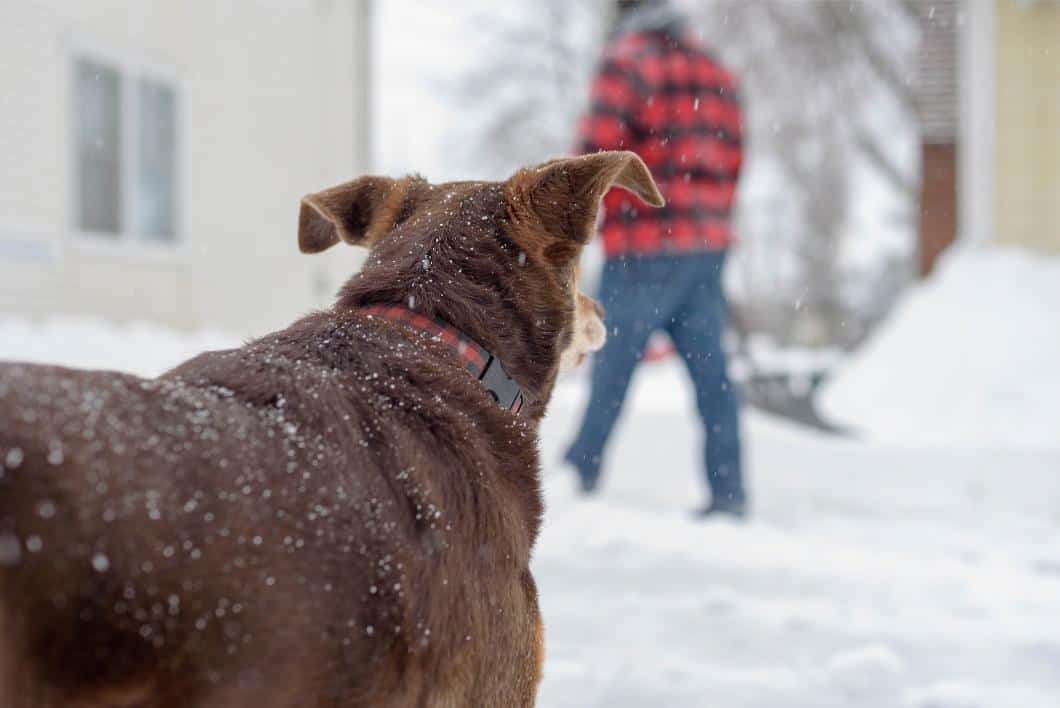Pet First-Aid Essentials: How to Handle Common Winter Emergencies

Colorado winters aren’t kidding around. While many pets are highly accustomed to the experience of bouncing through the snow, that doesn’t mean they are immune to frostbite and hypothermia. Coal Creek Animal Hospital is here to help you and your pet through these winter emergencies with some pet first-aid essentials:
The Risk of Poisoning
Antifreeze products containing ethylene glycol are disastrous to pet health. About 30 minutes after ingestion, pets will often experience vomiting, coordination loss, excessive thirst/urination, and lethargy. Symptoms may look like they’re improving during the second stage of poisoning (or 12-24 hours later) but dehydration, respiratory distress, and high heart rate typically occur.
Without emergency veterinary assistance, the third stage of antifreeze poisoning depletes the kidney’s abilities to function. Treatment is critical, and pets can recover before the stages progress. Left alone, antifreeze poisonous can be fatal.
Electric Shock and Entanglements
Due to the prevalence of holiday decorations and lights, many pets face accidental electric shock or serious side effects related to batteries. In order to avoid this, be sure to:
- Never allow a pet to play on or near strong lights and if they start to chew on them, remove the lights completely from their environment.
- Tape cords to the floor or wall or use shorter extension cords.
- Alkaline batteries can be punctured with a bite, so please keep all remote controls and battery-operated decorations out of reach.
Plants Galore
It is highly recommended to keep all poisonous plants out of the house, but if you do bring them indoors, be sure that your pet cannot ever have access to them. Poinsettias, lilies, amaryllis, holly, and mistletoe are some of the biggest holiday plants that are also toxic to pets. Check out this list of poisonous plants.
Winter Pet Safety
Lafayette winters can be quite chilly. To safeguard a pet’s health and well-being, only allow them to enjoy extended periods of time outside if temperatures are well above freezing. If it’s too cold for you to be outside for any length of time, it’s also too cold for your pet (despite what they might think!).
When outside for bathroom breaks or exercise, try to outfit your pet in protective clothing and even footwear if they’ll tolerate it. Take time in icy conditions and discourage them from overexerting themselves too much in the cold.
Winter Goodies
A quick reminder that homes during winter seem to overflow with tasty treats. Never allow your pet to eat or have easy access to:
- Chocolate
- Alcohol
- Grapes or raisins
- Macadamia nuts
- Xylitol
If you have any questions about your pet’s health and safety this winter, please give us a call at (720) 894-4005. Our staff at Coal Creek Animal Hospital is always here to help your pet.
